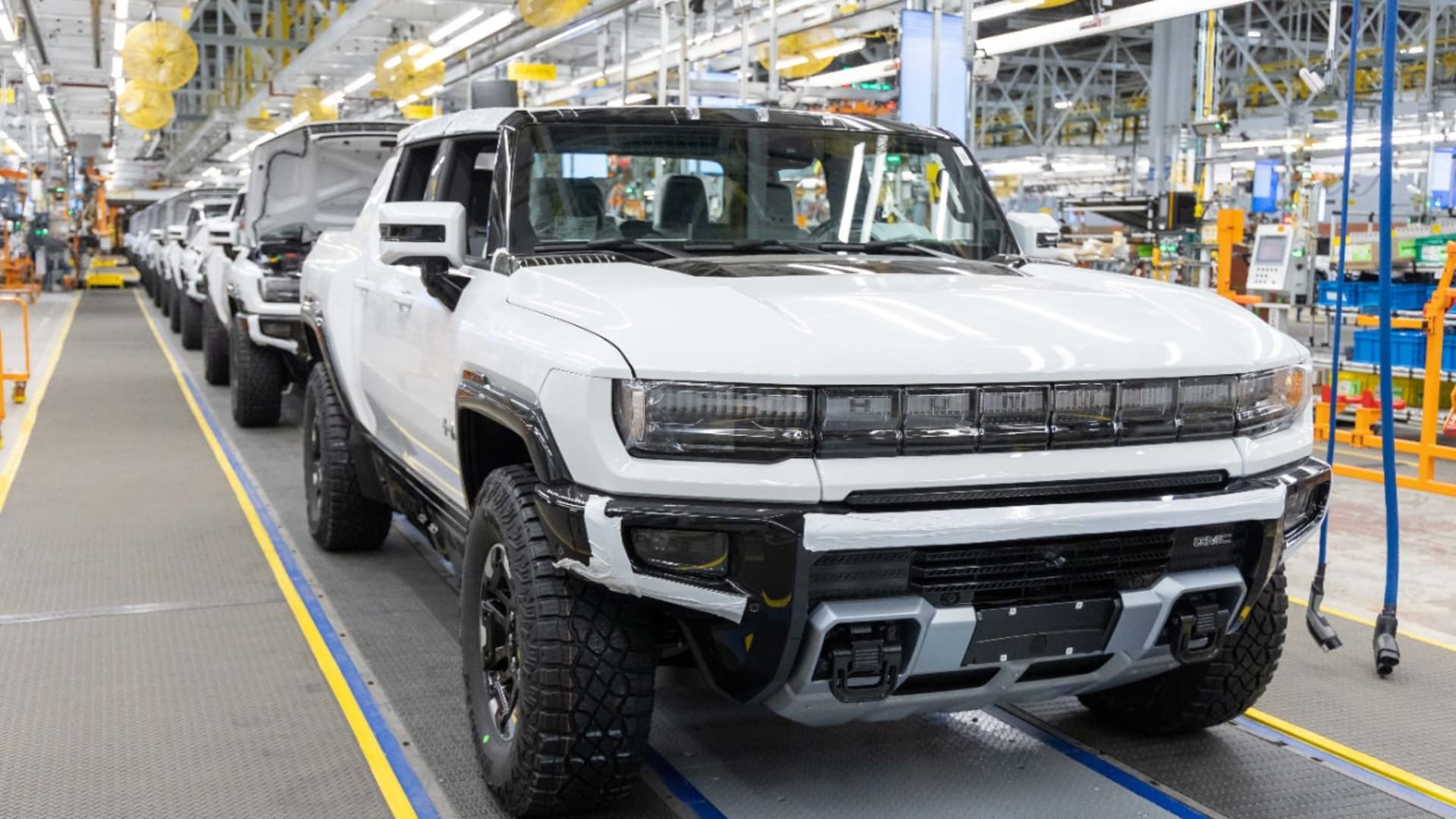

Any significant reduction or a rollback of the Inflation Reduction Act’s support for electric vehicles would benefit China, according to General Motors board member Jon McNeill.
“I think we risk losing the auto manufacturing share to China. We really do, globally,” McNeill, a former Tesla president and cofounder and CEO of DVx Ventures, said Wednesday during CNBC’s “Squawk on the Street.”
The IRA of 2022 includes incentives for consumers to purchase EVs as well as significant support for carmakers and suppliers to produce all-electric vehicles and their components in North America rather than overseas.
McNeill, in an email to CNBC, said the IRA is providing enticements to both the manufacturers and consumers “to level the playing field” against Chinese car companies.
The expansion of Chinese automakers has been a growing concern for companies from Detroit to Germany. Global automakers are worried that BYD and other Chinese rivals could flood their markets, undercutting domestic production and vehicle prices.
The IRA is also a potential issue in the upcoming November presidential election. There have been recent media reports that if former President Donald Trump is elected to a second term, he would gut many of the Biden administration’s clean energy and climate initiatives such as the $430 billion IRA.
Republican presidential candidate and former U.S. President Donald Trump attends a campaign event in Freeland, Michigan, U.S. May 1, 2024.
Brendan Mcdermid | Reuters
Trump has alluded to such moves. He said at a May 1 rally in Wisconsin that upon taking office, he would “impose an immediate moratorium on all new spending grants and giveaways under the Joe Biden mammoth socialist bills like the so-called inflation Reduction Act.”
“We’re gonna save all that money. It’s not helping you at all. It’s not doing anything for you. It’s just, it’s just like a political game,” Trump said.
To actually get a wholesale IRA repeal, Trump would need Republican majorities in both chambers of Congress, which is unlikely, though possible. Moreover, those hypothetical Republican majorities would need to put IRA rollbacks at the top of their legislative priority list, which is also not guaranteed.
However, in a second term, Trump could further delay implementation of the IRA’s policies, which have been already been rolling out more slowly than some would like due to the complexities of the law.
McNeill said he has been closely watching the political environment regarding the IRA. He said any changes should be a bipartisan discussion rather than any sort of Republican rollback or reduction.
McNeill noted the Chinese government has been supporting its domestic automakers in the form of billions of dollars in assistance and subsidies, 0% financing and lower labor costs, among other incentives.
Production is now set to begin at the former Detroit-Hamtramck assembly plant, less than two years after GM announced the massive $2.2 billion investment to fully renovate the facility to build a variety of all-electric trucks and SUVs.
Photo by Jeffrey Sauger for General Motors
“It gets very difficult to compete at that price level or that cost level from the U.S., which is why it’s really important, a lot of people believe, to protect the U.S. manufacturers from that,” he said.
To help U.S. automakers compete with Chinese companies, President Joe Biden last week announced plans to quadruple tariffs on China-made electric vehicles, raising them to 100% from 25%.
However, several automotive and trade experts told CNBC the increased tariffs are a near-term protectionism act that may delay, but won’t stop, Chinese automakers from coming to the U.S. with EVs.
The EV tariffs, and other increases on battery materials, were part of a larger package of new tariff rates on $18 billion worth of Chinese imports.
— CNBC’s Rebecca Picciotto contributed to this report.
